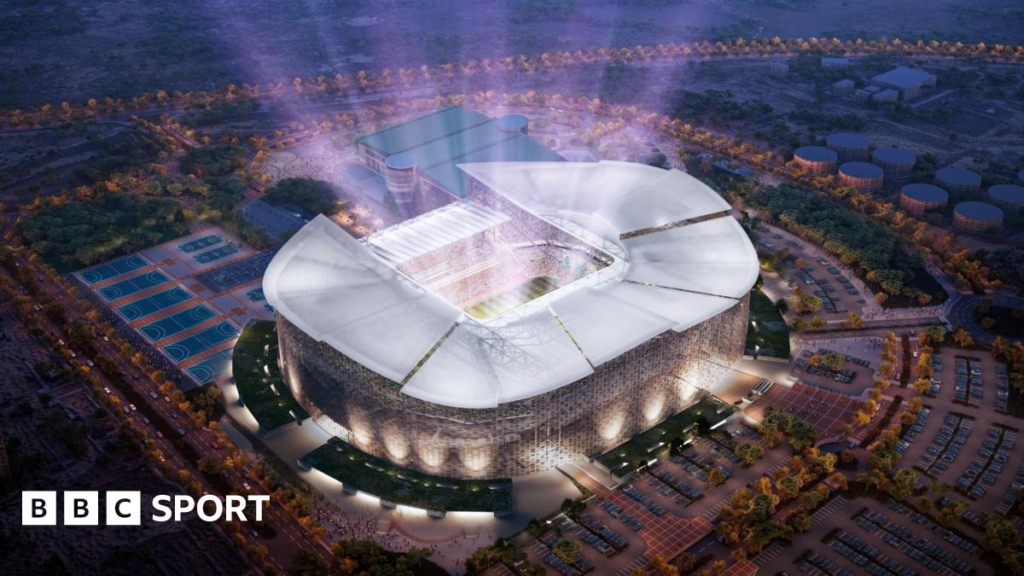Many believe that while Qatar delivered a secure and memorable World Cup enjoyed by many fans, the years of controversy that overshadowed the tournament over human rights, discriminatory laws, and the major disruption to the football calendar caused by a first winter World Cup could now be repeated.
Back in 2010, Qatar’s shock victory in the vote to decide the 2022 hosts took Fifa’s then-leadership by surprise. In contrast, Infantino appears to have been supportive of the idea of a Saudi World Cup. And with Fifa having brought in a human rights policy in 2017, there could be even more scrutiny on its decision – and any evidence that it leads to workers being adversely impacted.
As with Qatar, the Saudi World Cup infrastructure will be largely built by migrant workers from South Asia, with more than 13 million foreigners living in the country, and the scale of construction required has inevitably led to concerns.
Fifa’s own report has concluded that “a number of severe human rights impacts did ultimately occur in Qatar from 2010 through 2022 for a number of workers connected to the World Cup. This included: deaths, injuries and illnesses; wages not being paid for months on end; and significant debt… a credible argument can be made that Fifa contributed to some of the impacts”.
The media scrutiny that accompanied the build-up to Qatar’s World Cup may have led to labour reforms that were brought in, although campaigners have raised concerns over implementation, and are furious that Fifa has not acted on the key recommendation of its own report and paid financial compensation to workers who were harmed.
Last year, Prince Abdulaziz assured me there would be no repeat of Qatar’s issues with workers’ rights, saying: “We have 10 years to work on that, we already started in a lot of the venues, so we have a long time to do it in the right process.”
However, in its Saudi evaluation report, external, Fifa references “areas where further legal reforms are needed and… effective enforcement, without which the risk of indecent working conditions could be elevated”.
Fifa hails the Saudi government’s “commitment to respecting, protecting and fulfilling internationally recognised human rights in connection with the competition including in the areas of safety and security, labour rights, rights of children, gender equality and non-discrimination, as well as freedom of expression (including press freedom)”.
But with regard to diversity and anti-discrimination, its report also “notes gaps and reservations in the implementation of relevant international standards”. Despite that, Fifa claimed “a good potential that the tournament could serve as a catalyst for some of the ongoing and future reforms and contribute to positive human rights outcomes”.
Amnesty said the assessment was: “An astonishing whitewash of the country’s atrocious human rights record. Fundamental human rights reforms are urgently required in Saudi Arabia, or the 2034 World Cup will be inevitably tarnished by exploitation, discrimination and repression.” Campaign group Fair Square said Fifa had “plumbed new depths”.







Yorumlar kapalı.